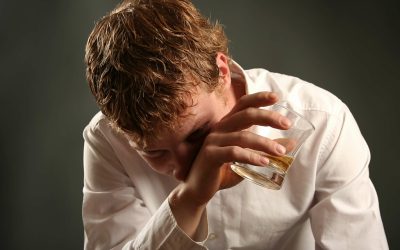12 Steps of Recovery: How These Programs Work
Long-term success in this stage often hinges on the individual’s ability to stay connected with support networks, continue therapy, and engage in activities that reinforce their commitment to a sober life. Once an individual decides that change is necessary, they move into http://aidb.ru/?aion=item_info&id=169400094 the preparation stage. Here, they start planning for recovery by setting goals, seeking support, and researching treatment options.
Can your brain heal from addiction?

It’s also important to remember that, as with a chronic physical condition, relapse can occur. Some people go through the steps in addiction recovery more than once in their life. It’s also important to remember that, as with a chronic physical condition, http://samarahunter.ru/forums/showthread.php?t=3134 relapse can occur.
- This very act of humility is a significant turning point in the change process.
- The journey to recovery is highly individualized, with diverse paths tailored to unique circumstances.
- When you’re confident in your ability to quickly de-stress, facing strong feelings isn’t as intimidating or overwhelming.
- This step isn’t weak; it shows courage as you start healing65.
- Others in recovery or professionals who work in addiction understand that you still need support.
The Role of Therapy in Addiction Recovery
- Embarking on the journey to overcome addiction is a complex and deeply personal process, often marked by several distinct stages.
- When I finally asked for help, I found support and love in a community that embraced me not as a failure but as someone rebuilding their life; my recovery was celebrated as a testament to resilience.
- It’s a deep change in thinking, backed by the 12-Step program and recovery stages.
- When mental illnesses are also present, recovery becomes much harder17.
- Although quitting entirely is the best path to wellness, reducing or eliminating the most harmful substance use or behavior is a huge improvement and will greatly reduce the harm caused.
- Medication may be used to manage withdrawal symptoms, prevent relapse, or treat any co-occurring mental health condition such as depression or anxiety.
- A sponsor or mentor can serve as a guide, offering personalized support and advice.
Individuals with experience and expertise may find a route to full http://nbt-stroy.ru/catalog/nalivnye-poly/nalivnoy-pol-ultraflor-04/ employment by first being willing to offer their skills pro bono or as a volunteer to businesses or nonprofit organizations in their field. Recovery from addiction is not a linear process, and increasingly, relapse is seen as an opportunity for learning. Such triggers are especially potent in the first 90 days of recovery, when most relapse occurs, before the brain has had time to relearn to respond to other rewards and rewire itself to do so. Learning what one’s triggers are and acquiring an array of techniques for dealing with them should be essential components of any recovery program. Only 1.0 percent of people receive substance abuse treatment as an inpatient or outpatient at a specialty facility.
Stages of Recovery
- Explore how fentanyl-laced heroin is killing addicts and learn about the urgent crisis and prevention strategies.
- Don’t let the word “theoretical” confuse you; the Transtheoretical Model of Change is a proven method that shows people don’t change behaviors quickly and decisively.
- Patients are encouraged to continuously evaluate their progress, ensuring long-term commitment to sobriety.
John C. Umhau, MD, MPH, CPE is board-certified in addiction medicine and preventative medicine. For over 20 years Dr. Umhau was a senior clinical investigator at the National Institute on Alcohol Abuse and Alcoholism of the National Institutes of Health (NIH). A study published in “The Journal of Substance Abuse Treatment” found that mindfulness-based interventions significantly decreased substance use and improved psychological functioning.

